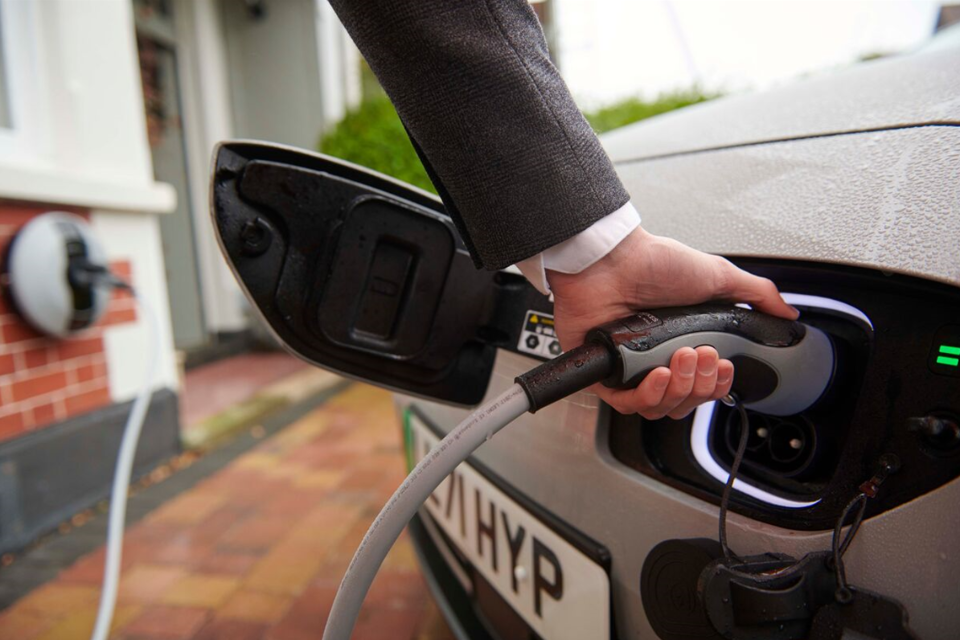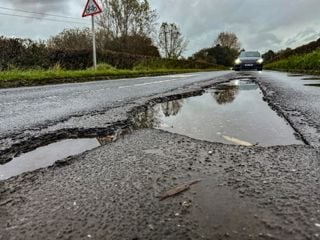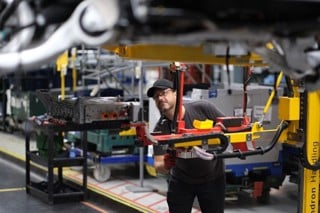The Campaign for Better Transport (CBT) has called for the Chancellor to introduce a pay-as-you-drive charge on zero-emission vehicles.
The charity, which works across England and Wales to make transport “better, greener and fairer”, says revenue from fuel duty will decline by an estimated £5 billion a year by 2033 as the UK transitions from petrol and diesel vehicles to zero-emission technologies.
This easiest immediate solution to address this, says the organisation, would be a simple charge levied on ZEVs on a per-mile basis, while having an adequate transition period would enable industry to prepare.
Exempting existing ZEV drivers would incentivise uptake before the implementation date, it adds.
In a letter to Chancellor Rachel Reeves, Silviya Barrett, director of policy and research at CBT, wrote: “The new Chancellor faces a looming black hole. She can avoid it in a way which is fair and which garners broad public support.
“But she should start now, as this issue will only get more pressing.”
The Campaign for Better Transport (CBT) has called for the Chancellor to introduce a pay-as-you-drive charge on zero-emission vehicles.
The charity, which works across England and Wales to make transport “better, greener and fairer”, says revenue from fuel duty will decline by an estimated £5 billion a year by 2033 as the UK transitions from petrol and diesel vehicles to zero-emission technologies.
This easiest immediate solution to address this, says the organisation, would be a simple charge levied on ZEVs on a per-mile basis, while having an adequate transition period would enable industry to prepare.
Exempting existing ZEV drivers would incentivise uptake before the implementation date, it adds.
In a letter to Chancellor Rachel Reeves, Silviya Barrett, director of policy and research at CBT, wrote: “The new Chancellor faces a looming black hole. She can avoid it in a way which is fair and which garners broad public support.
“But she should start now, as this issue will only get more pressing.”
Barrett added: “It should be cheaper to drive a zero-emission vehicle than a more polluting vehicle, but it is only fair that these drivers should pay a share, and a pay-as-you-drive model can achieve this.”
The idea of a national pay-per-mile road pricing scheme is not new, having been considered around 15 years ago by the-then Chancellor Alistair Darling.
But it has a long faced plenty of opposition and has been seen as too politically risky to introduce. There are also technical challenges which would need to be overcome.
However, research over the past couple of years has found opposition seems to be thawing, and last year think-tank Resolution Foundation called for the tax change to plug the same expected revenue shortfall.
This year, research by Campaign for Better Transport showed 65% of the public believe it is fair for ZEV drivers to be taxed but at a lower rate than petrol and diesel drivers against 19% who disagree.
CBT leads a pay-as-you-drive forum, which consists of 37 organisations including transport industry and sector bodies, NGOs and think-tanks.
It says while different members of the forum have slightly different perspectives, all would support a Treasury move on vehicle taxation, believing it is important ZEV drivers should fairly contribute.
Simon Williams, head of policy at RAC, said: “With fuel duty revenue set to fall further as more EVs come on to the road, a replacement form of taxation needs to be introduced to avoid losing billions.
“Our research suggests drivers broadly support the principle of ‘the more you drive, the more tax you should pay’.
“Whatever any new taxation system looks like, the most important thing is that it is simple and fair to drivers of both conventional and electric vehicles.
“A pay-per-mile system could be set up according to vehicles’ emissions with EV drivers paying the least to further encourage take-up and ‘gas guzzlers’ paying the most.
“We’re not in favour of charging different amounts per mile based on the type of road driven n.
“We believe the Treasury needs to get moving on creating this new system sooner rather than later.”
Ann Carruthers, president of Adept (Association of Directors of Environment, Economy, Planning & Transport, added: “As we transition to a decarbonised transport system, it is crucial that we address the funding gap created by declining fuel duty revenues.
“A well-designed, pay-as-you-drive system would provide both a sustainable funding source for our vital road infrastructure and also encourage the shift towards greener travel choices that are crucial for our net zero ambitions.”
Login to continue reading.
This article is premium content. To view, please register for free or sign in to read it.

























Andy Ellis - 10/09/2024 09:30
This does make sense, as long as it continues to incentivise EVs and lower emitting vehicles. I think it would be helpful if there was a way of charging more for peak times, but I'm not convinced this would be feasible.